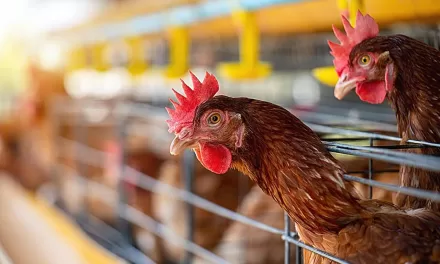A team of researchers from Brigham and Women’s Hospital and Boston Children’s Hospital in the US has made significant strides in understanding why some children develop severe respiratory syncytial virus (RSV) infections, while others experience only mild symptoms. The team discovered that an increase in natural killer (NK) cells in the airways may be a key factor in determining disease severity in children with RSV.
RSV is a leading cause of hospitalizations in young children, often resulting in complications such as bronchiolitis and pneumonia. Despite the virus’s widespread impact, little has been understood about the mechanisms that drive severe illness in some children while others recover quickly. This new research, published in the journal Science Translational Medicine, sheds light on the potential role of NK cells in worsening respiratory symptoms.
NK Cells: First Responders That May Contribute to Severe Disease
Melody G. Duvall, a researcher at Brigham and Women’s Hospital and a lead author of the study, explained that NK cells are critical first responders during viral infections. These cells typically help the body by attacking and killing infected cells. However, in some cases, their activity may also contribute to increased lung inflammation, worsening respiratory conditions like RSV.
“Our findings align with data from COVID-19 studies, which reported that patients with severe symptoms also had increased NK cells in their airways,” Duvall said. “Together with previous studies, our data link NK cells with serious viral illness, suggesting that these cellular pathways merit additional investigation.”
Altered NK Cells Linked to Severe RSV Cases
The research team analyzed immune cells from both the airways and blood of children infected with RSV. They found that children with severe RSV infections had higher levels of NK cells in their airways compared to those with mild symptoms. Interestingly, they also noted a corresponding decrease in NK cells in the blood of these children. This suggests that the cells may be migrating to the lungs, where they become more active and possibly contribute to the increased inflammation seen in severe cases.
Further analysis revealed that NK cells in severely ill children were altered in both their appearance and function. These changes may impact their ability to effectively fight the virus, allowing the infection to progress to more serious conditions.
Potential for New Treatments
While treatment options for severe RSV are currently limited to supportive care, this study opens the door to potential new therapeutic targets. By better understanding how NK cells contribute to RSV severity, researchers may be able to develop treatments that modulate their activity, reducing lung inflammation and improving outcomes for affected children.
In recent years, pediatric RSV infections have surged, partly due to reduced exposure during pandemic-related lockdowns. Vaccines for RSV have become available for children aged 19 months and younger, adults aged 60 and over, and pregnant individuals, offering hope for reducing future hospitalizations and severe cases.
This study represents a crucial step toward unraveling the complexities of RSV infection and identifying new ways to protect vulnerable children from severe illness. Further research into NK cell pathways could lead to breakthroughs in the treatment and prevention of not only RSV but also other viral illnesses that involve lung inflammation.












